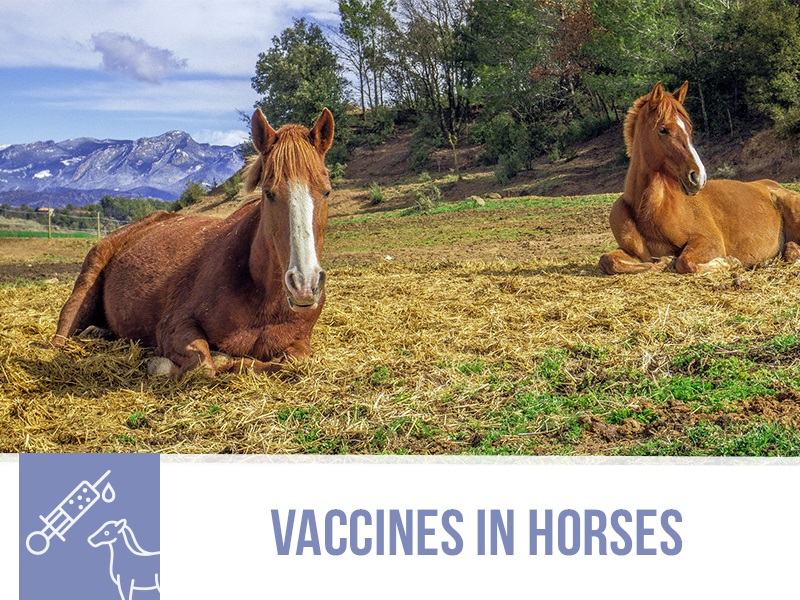
Vaccines in horses

How much do you know about vaccines? They are one of the most important parts of preventive medicine and our horses are no exception.
Vaccinations allow us to avoid very severe diseases with very little risk and eliminate the need for difficult treatments. Beyond being instrumental in avoiding many infectious diseases, they can also:
- Lessen how severe a disease will run in animals that are already affected
- Make it harder for a disease to spread through your herd or the area
The immune system is adaptable - when it contacts an infectious agent for the first time, there is a bit of a lag before enough cells are produced that can create enough antibodies to solve the issue. The second time the same disease happens, those cells already exist and the immune response is much faster.
Vaccines work by pretending to be an infection and this triggers the same production of cells that a harmful infection would. Basically, all the immunity benefits of a disease but mostly none of the danger!
There are several vaccinations for horses and which ones you should consider will depend on your horse's lifestyle and their chances of contacting some infectious agents (oversea travelling, breeding, certain sporting events). However, it is highly recommended that all horses are vaccinated against tetanus and equine Influenza.
Tetanus is a severe disease caused by a bacteria called Clostridium tetani and if left untreated, it can be fatal. Equine Influenza is a disease of the respiratory tract and it can be quite debilitating, allowing for secondary infections to thrive and it might even damage the lungs permanently.
Talk to your vet about the best course of vaccination for your horse and don't forget, it's always better to prevent!
Would you like to know more about horses? Check our Equine Courses:
Equine courses
Published: 27 Mar 2018
Read the previous article: Feline Herpesvirus

